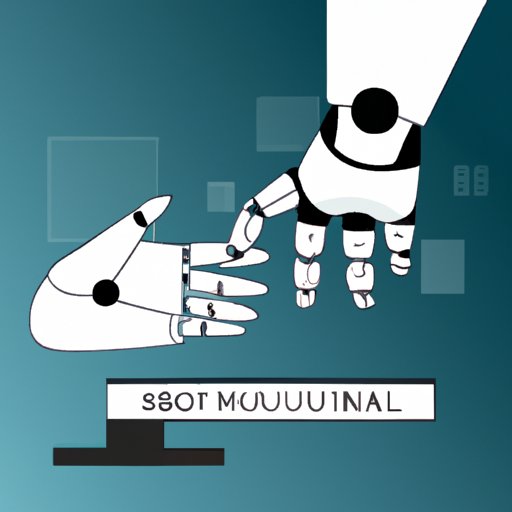Introduction
Artificial intelligence (AI) is a broad term that refers to machines capable of carrying out tasks that typically require human intelligence. AI technology has been around for decades but has recently seen increased development and use in many different industries. While AI can offer many potential benefits, there are also some significant drawbacks to consider.
The Risk of Job Loss Due to Automation
One of the most concerning disadvantages of AI is the potential for job loss due to automation. As AI systems become more sophisticated, they are increasingly being used to automate processes that were once done by humans. This automation can result in fewer jobs as companies rely on AI instead of human workers. This can have a significant impact on individuals and the economy as a whole.
Automation can also lead to long-term unemployment, as displaced workers may not be able to find new jobs in an AI-dominated market. This could leave people without work for extended periods of time, leading to financial hardship and other negative consequences.
The Lack of Human Touch in AI-Driven Solutions
Another disadvantage of AI is the lack of human touch in AI-driven solutions. While AI systems can automate certain processes, they cannot replicate the nuanced understanding of a problem or situation that a human can provide. AI-driven solutions can also lack empathy and fail to take into account the needs and feelings of those they are designed to help.
In addition, AI systems can be limited in their ability to adapt to changing situations or unexpected events. This can lead to poor outcomes, as AI systems may not be able to recognize or respond to new information in a timely manner.
Security and Privacy Concerns
AI systems are also susceptible to security and privacy breaches. AI systems often store large amounts of sensitive data, which makes them attractive targets for malicious actors. In addition, AI systems can contain vulnerabilities that could be exploited by hackers, resulting in the theft of data or disruption of services.
To protect against these threats, organizations must implement robust security measures, including encryption, firewalls, and access controls. These measures can help ensure the safety of AI systems and the data they store.
Algorithmic Bias and Discrimination
AI systems can also lead to algorithmic bias and discrimination. AI algorithms are designed to learn from existing data, which can lead to inaccurate results if the data contains bias or errors. This can lead to unfair outcomes, such as people being denied services or opportunities based on inaccurate assumptions.
Organizations should take steps to address algorithmic bias, such as collecting more diverse data sets and using human oversight to monitor AI algorithms. These measures can help reduce the potential for unfair outcomes and ensure that all people are treated fairly.
Unpredictability of AI Systems
Finally, AI systems can be unpredictable and difficult to control. AI algorithms are designed to learn and evolve over time, which can lead to unexpected outcomes. This can make it difficult to ensure the safety of AI systems, as unforeseen events or behaviors may arise.
Organizations should take steps to mitigate this risk, such as rigorous testing of AI systems and the implementation of safety protocols. These measures can help ensure that AI systems operate as intended and do not cause any harm.
Conclusion
In conclusion, artificial intelligence presents both potential benefits and significant risks. The risks include job loss due to automation, lack of human touch in AI-driven solutions, security and privacy concerns, algorithmic bias and discrimination, and unpredictability of AI systems. To address these challenges, organizations should take steps to ensure the safety and fairness of AI systems.
(Note: Is this article not meeting your expectations? Do you have knowledge or insights to share? Unlock new opportunities and expand your reach by joining our authors team. Click Registration to join us and share your expertise with our readers.)
